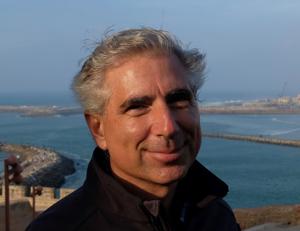
What are the risks of burying carbon dioxide deep underground? This once-obscure topic has gained attention as debates over carbon capture and sequestration roll across our state. As a geologist who has worked in Louisiana for 15 years, I believe these risks have not yet been well communicated to decision-makers and the public, and I want to take a few minutes of your time to share my concerns.
Carbon capture and sequestration is a tool that has been proposed to address climate change. Climate change, which is driven by the increased concentrations of carbon dioxide and other greenhouse gases in the atmosphere, is a concern for Louisiana. It causes hurricanes to strengthen and ocean levels to rise — risks that too many of us know too well. CCS seeks to capture carbon dioxide from the waste stream of an industrial facility, pressurize it, and inject it deep into Earth’s crust where it will hopefully stay for thousands of years.
While some CCS technologies are decades old, few projects have done it on the scale that is being proposed in Louisiana. For example, the Decatur, Illinois project — often considered to be one of the largest, most successful CCS projects to date — stored 1 million metric ton of carbon dioxide over a three-year period. In contrast, Louisiana’s annual output is nearly 200 times greater. The technology is still relatively new, particularly relative to the scale that is now being proposed, and this relative newness raises risks for Louisianans.
Several risks associated with CCS were presented in a 2019 report by the National Petroleum Council, a panel of academics, professionals and technical experts who have been advising the federal government on energy issues since the Truman administration. This report developed a road map to implementing CCS, and pointed out some of risks that could appear along the way.
According to this report, some of the biggest risks come from old oil and gas fields. Old wells act something like straws in the earth — they are easy pathways that carbon dioxide can take to reach the surface. Oil and gas extraction, the report points out, can also alter rocks, cracking them or making them less conducive to CCS. Hydraulic fracturing (fracking) can further damage rocks, making them more susceptible to leaking carbon dioxide.
Here in Louisiana, we should take note of these risks. There has been oil and gas drilling in this state for over a century, and there have been hundreds of thousands of wells drilled. Today, there are thousands of orphan wells in Louisiana and the nearshore regions of the Gulf of Mexico, some of which are not capped. Risks associated with oil and gas fields, wells, active and abandoned, need to be addressed to minimize the chances of accidents or blowouts.
If carbon dioxide does disperse underground, it could be problematic for our groundwater resources. When dissolved in water, carbon dioxide is a corrosive acid that could cause toxic elements like copper, chromium, arsenic or radium to leach out of the aquifer rocks and into groundwater. These contaminants could be harmful to people who drink well water, or industries that use groundwater in their processes.
Louisiana also needs to consider whether injecting high-pressure carbon dioxide could cause the ground to shift. In Oklahoma, wastewater injection caused a sharp increase in the rate and size of earthquakes — most in places where earthquakes seldom occurred before. While Louisiana’s rocks are less susceptible to earthquakes, the state has many geological faults that could become active and move if injected with fluids like high-pressure carbon dioxide. This could be problematic in Louisiana, where shifting lands contribute to the fragility of our landscape. For reasons that should be obvious, we do not want the ground shifting underneath a levee, road, bridge or home.
There are also risks to Louisiana’s landscape. The build-out of CCS will require an expansion of Louisiana’s pipeline network, and we know that pipeline canals are one cause of land loss in Louisiana. A CCS expansion will also lead to the construction of large facilities in Louisiana’s coastal zone, and our coast is becoming a difficult place to work, as ever-more-intense storms strike this increasingly fragile landscape.
In my professional view, there are risks associated with CCS that we need to take seriously. I call upon my friends and colleagues in Louisiana’s science community to start investigating the challenges associated with CCS, so that we can have a more informed conversation about the potential trade-offs associated with this new activity slated to occur on our landscape.
Alexander S. Kolker is an associate professor at the Louisiana Universities Marine Consortium.

Leave a Reply